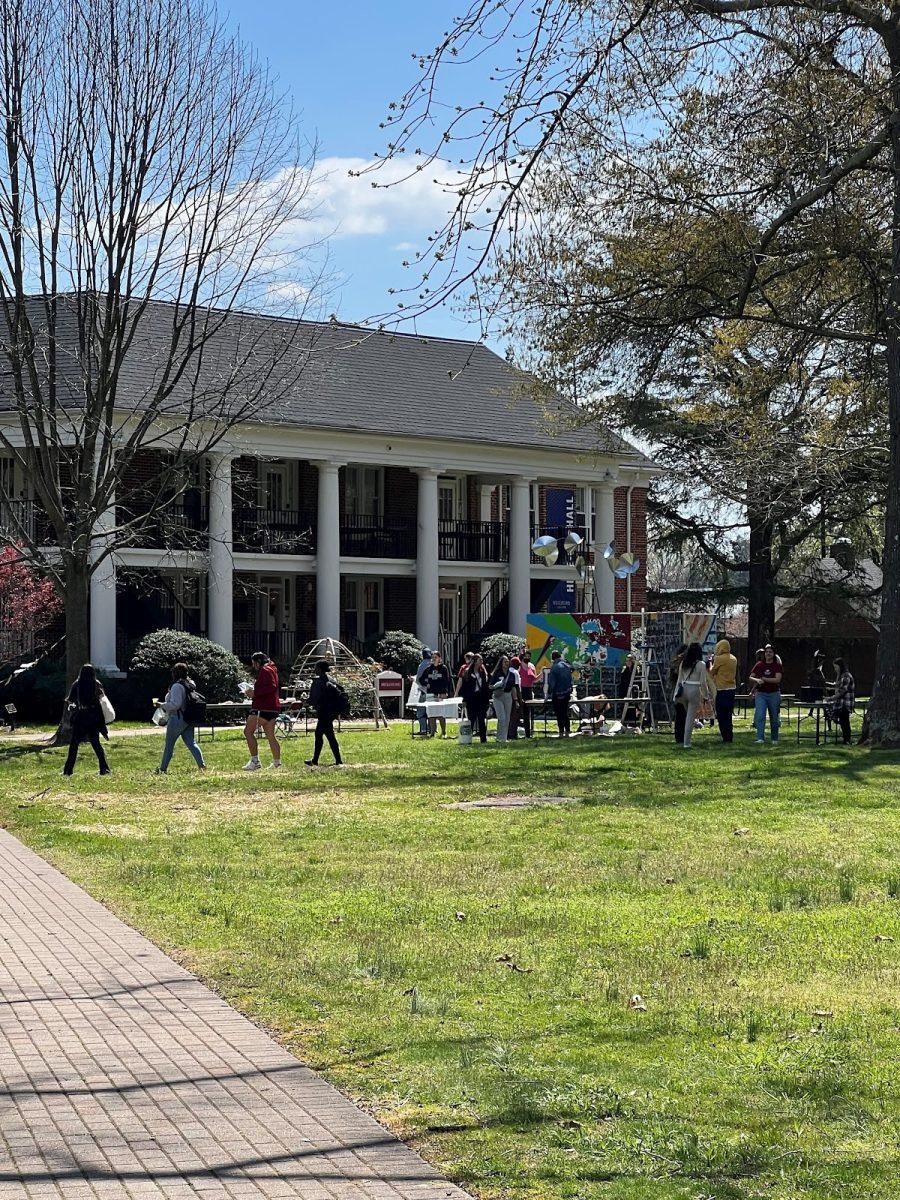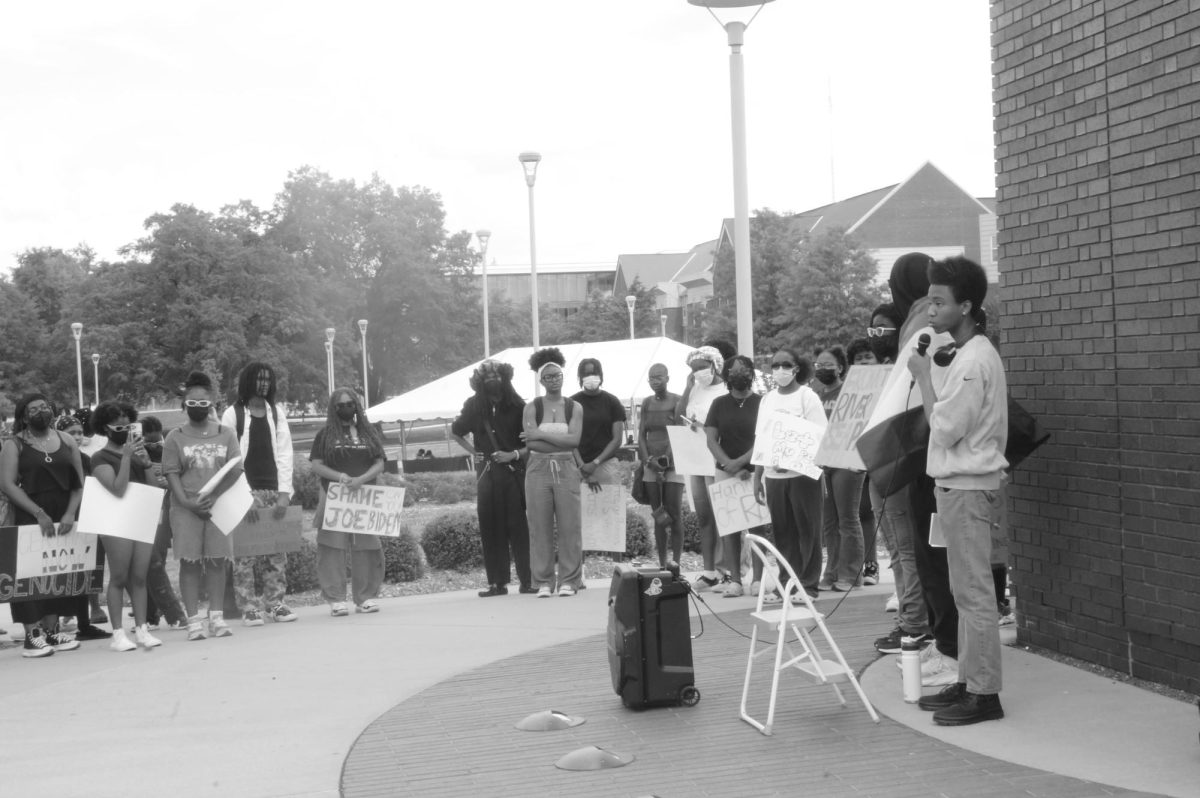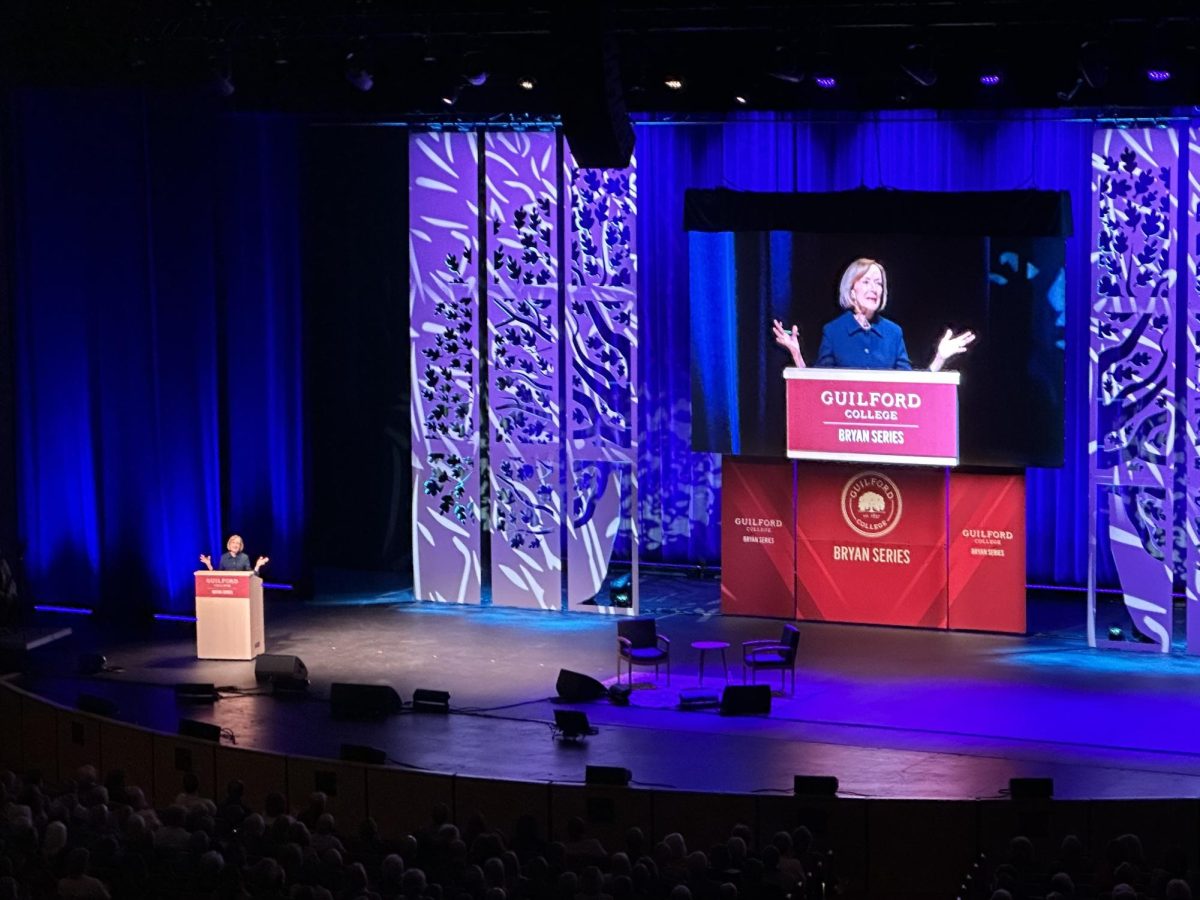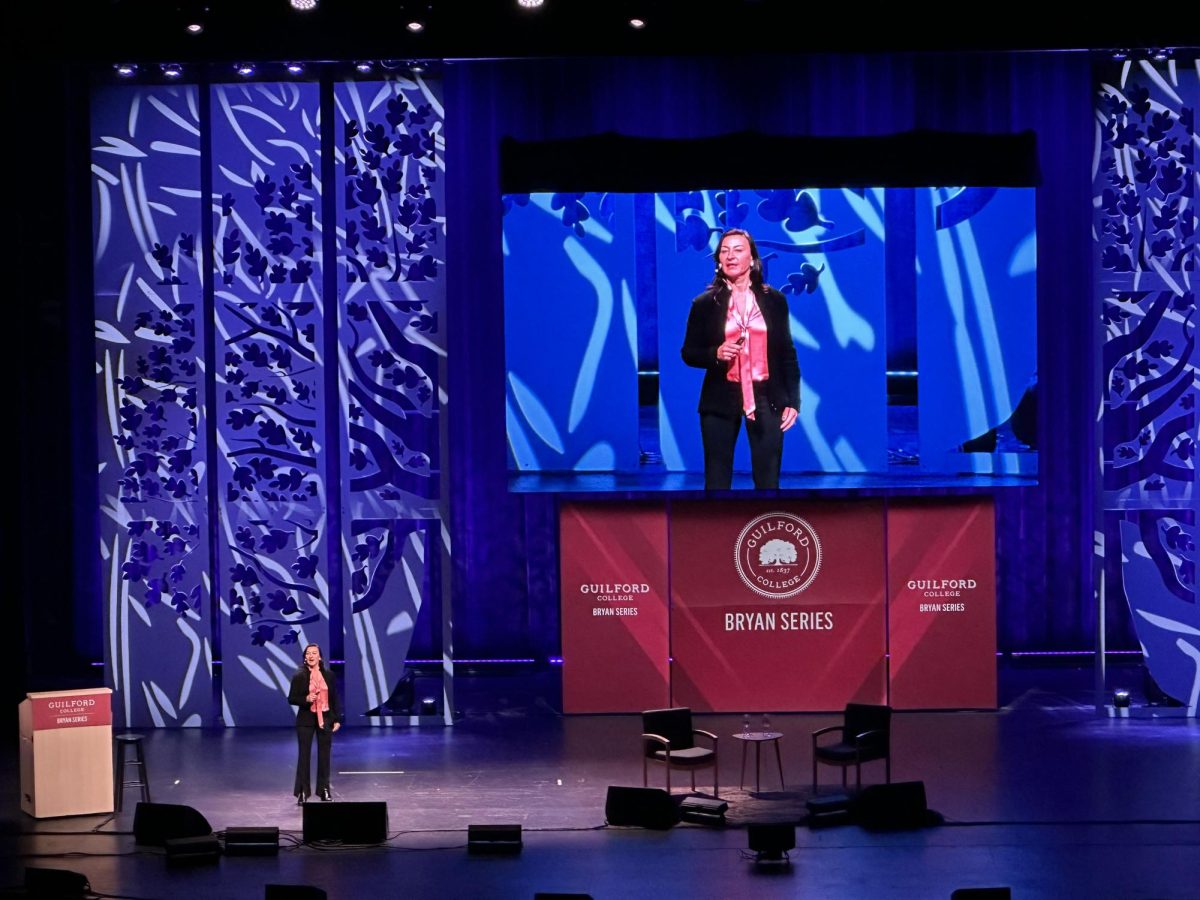“It’s a wonderful process.”
“A thoughtful process.”
“We’ve got great candidates.”
Coming out during a break in their final- decision meeting the evening of April 7, trustees reflected positively on the consensus process of choosing Guilford College’s next president. Some community members, however, were not as impressed.
Many disputed whether the structure of the process actually encouraged community participation or not.
“Interviews were at times a lot of people had class, and they were for such a short amount of time,” said sophomore Alex Barbour.
One 40-minute open forum session per candidate was set aside for students. Faculty and staff were offered two hour-long open forum sessions: one in the morning, one in the afternoon.
Considering that earlier stages of the search process were closed, many found the open on-campus sessions to be progress for the College’s aim of transparency. Yet, some wonder where the line between full transparency and token participation lies.
“I didn’t think it was very considerate to have the sessions at a time when a large portion of students couldn’t attend, and such a brief window of time to complete the surveys,” said senior Zak Larrabee. “It is almost like they opened the process simply for a façade of inclusivity.”
Dave Dobson, professor of geology and earth sciences and member of the presidential search committee, was sympathetic to the trustees’ time restraints.
“I wish the process could have allowed for a little more time for community members on campus to give feedback to the board, but I understand why they were on such a tight schedule,” said Dobson in an email interview.
On the day of each candidate’s visit, a survey was sent out through The Guilford Buzz and was open for less than 24 hours for community members to share their thoughts on the candidate. Nevertheless, some students felt their voices should have been included in more direct ways.
“Students shouldn’t be limited to just giving feedback,” said senior Sol Weiner. “We should actually have a vote or some place in the consensus process.”
Associate Vice President of the Office of Communications & Marketing Ty Buckner referred to himself as “a messenger,” since he is responsible for disseminating information from the trustees and administration to students, faculty and staff.
During the week candidates visited campus, Buckner posted Buzz announcements reminding people about the interview sessions and surveys. When asked if he had heard concerns from the community about not having enough time to engage with candidates, Buckner responded:
“I am mostly involved on a day-to-day basis with folks in this (Advancement) building,” said Buckner. “I stay pretty close to what I’m doing, and I haven’t sought out people’s opinions.”
Carole Bruce, trustee and presidential search committee chair, declined to comment on the process. Joseph M. Bryan Jr., trustee and chair of the board of trustees, was unavailable to comment.
Some faculty on the search committee brought forward a concern to Buckner and Bruce that The Buzz was an imperfect method to communicate the Survey Monkey feedback opportunity.
Additional methods that could have been used to spread the word about the process include tabling in Founders Hall, reaching out to club leaders, using social media or publishing announcements in The Guilfordian.
Still, many were grateful to have been included in the process that originally might have stayed anonymous for confidentiality reasons.
“I feel we laid it out pretty well for people,” said Buckner. “We do it in the same way, so everyone has a shot at it.”
Questions about how an open search process did not ensure full community participation have been raised nonetheless.
“When you think about how few students were actually able to attend the open forum sessions … give feedback, how many students knew there were surveys, and then on top of that, time restrictions, it just seems like it was set up so they wouldn’t receive much community input,” said junior Sara Minsky, a co-facilitator of Students Allied Against Privilege and Supremacy.






